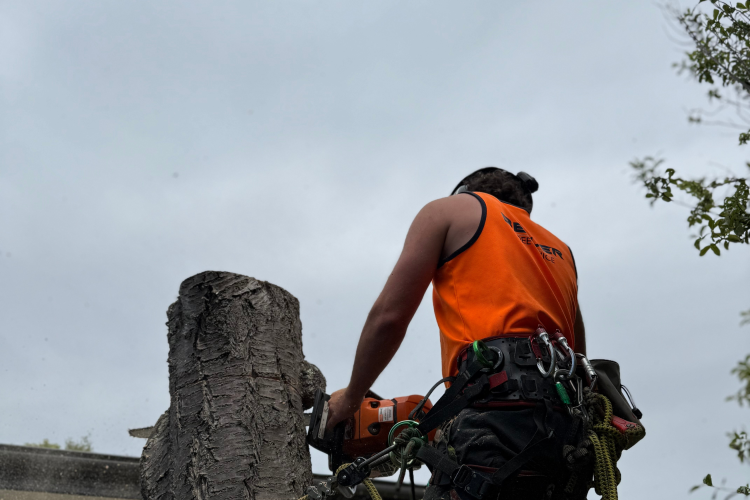The Role of Trees in Urban Environments

The Role of Trees in Urban Environments
Urban environments across New Zealand are bustling hubs of activity, but amidst the concrete, steel, and glass, trees play a crucial role in enhancing city life. From providing shade and improving air quality to supporting biodiversity and mental well-being, urban trees offer numerous benefits. At Beaver Tree Service, we believe in the power of trees to transform our towns and cities, making them healthier and more liveable for everyone.
Trees Improve Air Quality
One of the most significant benefits of urban trees is their ability to improve air quality. Trees act as natural air filters, absorbing pollutants like carbon dioxide, nitrogen oxides, and particulate matter. In return, they release oxygen, helping to combat the effects of vehicle emissions and industrial pollution. This is particularly important in New Zealand’s growing urban centres, where increasing traffic and development can impact air quality.
Urban Trees Help Combat Climate Change
Climate change is a pressing issue worldwide, and trees play a vital role in mitigating its effects. By absorbing carbon dioxide, trees help reduce greenhouse gases in the atmosphere. Additionally, their shade helps lower temperatures in urban areas, reducing the need for energy-intensive cooling systems. This cooling effect, known as urban heat island mitigation, is essential in cities where concrete and asphalt retain heat and raise temperatures.
Enhancing Biodiversity
Urban trees provide essential habitats for birds, insects, and other wildlife. Native trees, in particular, offer food and shelter to species that may struggle to survive in built-up areas. In cities like Auckland, Wellington, and Christchurch, urban tree planting initiatives have helped attract native bird species such as tūī, kererū, and fantails back into residential areas. By incorporating a mix of native and exotic species, urban tree planning can enhance biodiversity and maintain ecological balance.
Improving Mental and Physical Well-being
Spending time in green spaces has been proven to reduce stress, improve mood, and enhance overall well-being. Trees create a calming environment, providing shade, beauty, and a connection to nature that many urban dwellers crave. Studies have shown that access to trees and green spaces can lower blood pressure, improve concentration, and even boost immune function. This is why well-planned urban areas incorporate tree-lined streets, parks, and nature reserves for the benefit of residents.
Protecting Against Erosion and Flooding
Trees also play an essential role in managing urban water systems. Their roots help stabilise soil, preventing erosion, while their canopy slows down rainfall, reducing surface runoff and lowering the risk of flooding. In cities with heavy rainfall, such as those in New Zealand’s North Island, maintaining a healthy urban tree canopy can help prevent infrastructure damage and waterlogging.
The Importance of Tree Maintenance
While urban trees provide countless benefits, they also require proper care and maintenance to ensure their longevity and safety. Overgrown branches, diseased trees, or poorly placed plantings can pose risks to people and property. Regular tree pruning, health assessments, and responsible planting are crucial to maintaining a thriving urban forest. At Beaver Tree Service, we specialise in tree maintenance, helping keep New Zealand’s urban trees healthy and safe.
Conclusion
Trees are an invaluable part of urban life, offering environmental, social, and economic benefits. Whether you’re in a bustling city or a growing town, trees enhance the quality of life for everyone. If you need expert tree care on urban tree management, contact Beaver Tree Service today.
